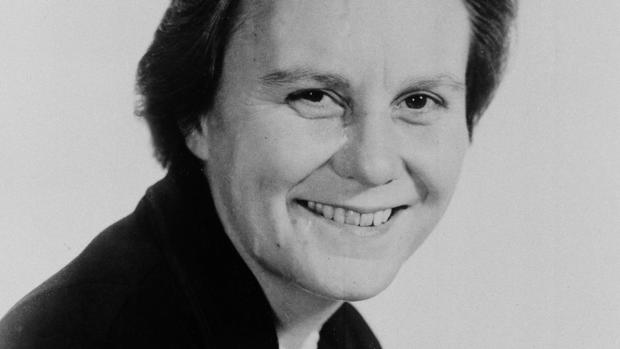"To Kill a Mockingbird" author Harper Lee buried in Alabama hometown
MONROEVILLE, Ala. -- On a day when mockingbirds sang outside the courthouse that inspired her classic American novel, author Harper Lee was laid to rest Saturday in a private ceremony, a reflection of how she had lived.
A few dozen people who comprised Lee's intimate circle gathered at a church in the small Alabama town of Monroeville, which the author used as a model for the imaginary town of Maycomb, the setting of her Pulitzer Prize-winning novel "To Kill a Mockingbird." Lee died Friday at age 89.
Lee's longtime friend, history professor Wayne Flynt, eulogized her in a ceremony at First United Methodist Church. Afterward, her casket was taken by silver hearse to an adjacent cemetery where her parents, A.C. Lee and Frances Finch Lee, and sister, Alice Lee, are buried. A spray of red and white roses covered the family headstone at the cemetery
Flynt said he delivered a eulogy that Lee specifically requested years ago. Entitled "Atticus Inside Ourselves," it was a tribute Flynt gave in 2006 when she won the Birmingham Pledge Foundation Award for racial justice. Flynt said Lee liked the speech so much that she wanted him to give it as her eulogy.
"I want you to say exactly that," Flynt quoted Lee as saying at the time. "Not one thing more, and not one thing less."
"If I deviated one degree, I would hear this great booming voice from heaven, and it wouldn't be God," Flynt said in an earlier interview.
Details of the service were fiercely guarded. The author, who for decades had declined media interviews, had wanted a quick and quiet funeral without pomp or fanfare, family members said.
"We obeyed her wishes," said Jackie Stovall, Lee's second cousin.
The town was appropriately somber a day after their native daughter's death. Black bows adorned the doors of the old courthouse in Monroeville where Lee as a child, like her literary creation Scout Finch, would peer down from the balcony as her lawyer father tried his cases in the courtroom.
Mockingbirds chirped and frolicked among blooming camellia bushes outside the courthouse on a warm Alabama morning that teased the early arrival of spring.
"She was a great gal," Monroeville resident Joe Brock told CBS affiliate WIAT. Brock said he met Lee through her older sister, Alice, and that the author used to spend her summers in Monroeville after moving to New York.
Asked what he'd miss most about Lee, Brock said, "Her warmth and her sincerity. And I'm glad to say that I was her friend and Alice's friend. They made my stay here in Monroeville much better than it would have been."
Jared Anton, of Hollywood, Florida, sat outside the old courthouse Saturday during part of a planned vacation through the South that coincided with Lee's death.
Anton said reading the book -- in which attorney Atticus Finch defends a wrongly accused African-American man -- was one of the reasons he decided to become a lawyer.
"It had an impact on me when I was younger. I wanted to do the right thing, to stand up to people, to defend the innocent, if you will," Anton said. "It is the greatest American novel. Name one that really has had more of an impact on Americans than that book."
The Southern town was home to childhood friends Truman Capote and Lee, giving rise to its self-given nickname of the literary capital of the South. Ann Mote, owner of the Ol' Curiosities & Book Shoppe in Monroeville, said she thinks the town will always be linked to Lee.
"She's a part of it and always will be," Mote said.
Tributes to Lee's novel dot the town. The courthouse is now a museum that pays homage to her creation.
According to Wanda Green, the museum's executive director, the courtroom was replicated for the 1962 film adaptation of "To Kill a Mockingbird," starring Gregory Peck.
"I think the book was so special, everybody wanted to be like Atticus (Finch)," Green told WIAT. "Everybody wants to be the hero, or the heroine, that stands up for somebody else."
There's the Mockingbird Inn on the edge of town and a statute of children reading "Mockingbird" in the courthouse square. Tickets go on sale in a week for the city's annual "To Kill a Mockingbird" play, Mote said. A black mourning bow donned the top of the sign at the bookstore, where a stack of hardcopy "Mockingbird" books sat the counter along with a DVD of the movie.
The town this summer had a celebration for the release of "Go Set a Watchman" -- Lee's initial draft of the story that would become "Mockingbird" -- even though many residents had ambivalent feelings about its release.
"She was an Alabama treasure. She was an international treasure. We were all blessed by her life and her work as we are diminished by her passing," said Cathy Randall, a friend of Lee's for the past 30 years.
Flynt and Randall said they had recently visited Lee at the Monroeville assisted living facility where she had lived for several years because of declining health. Flynt said Lee was "savagely witty."
"She was still the most brilliant person in any room," Randall said.
It's common knowledge in Monroeville that Lee did not like to talk about "Mockingbird."
"Everyone in this community always respected that," Green told WIAT.
Though, in Lee's passing, she left behind a question about her book that might never be answered. Many wonder whether the author based the story on her real life, in Monroeville.
"Her dad was a really good lawyer," Brock said. "'To Kill a Mockingbird,' if you read that, that was her dad -- I think. That was a book about her dad."
"That's just speculation here," Green said. "But I would like her to say, 'I'm Scout.'"
